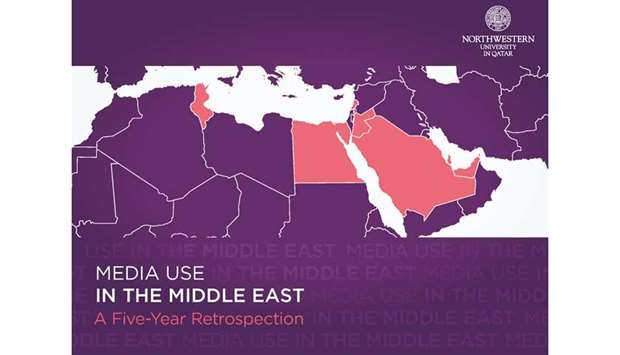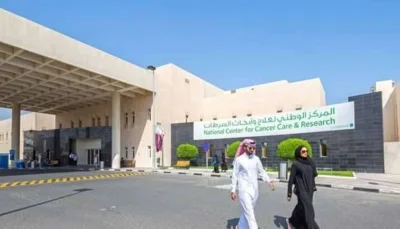A majority of Qataris — 62% — believe that the country’s national media is credible, according to a new report released yesterday by Northwestern University in Qatar (NU-Q).
Also among the noteworthy findings is the rise in the use of social media across the Middle East as a medium for free speech activities as well as a tool for self-expression and more utilitarian purposes connecting people with each other, according to a top NU-Q official.
The report consists of findings derived from surveys of seven countries NU-Q conducted annually from 2013 to 2017, providing insights into shifts in news and entertainment consumption, as well as social media use in the Middle East.
The study, which reveals long-term trends in news and entertainment consumption, social media preferences and attitudes about the media, indicates a lasting impact of the Arab Spring on media habits in the Middle East, NU-Q has said in a press statement.
Besides Qatar, the retrospection covers Tunisia, Lebanon, Jordan, Egypt, Saudi Arabia and the UAE.
The report, titled ‘Media Use in the Middle East, A Five-Year Retrospection’, offers comparative data and a detailed analysis of the “only longitudinal study of its kind in the region and one of the few in the world”. The research began in the wake of the Arab Spring and has tracked developments to distinguish between ephemeral, short-term media shifts and those that are more dramatic, the report says. It provides a portrait of peoples’ Internet activity, especially tracking the rise of social media. Over five years, there have been nearly 30,000 face-to-face interviews with 5,000 conducted on the phone, covering between six and eight representative countries each year across the Middle East. Begun with internal funding in 2012-13, the studies have been supported by an initial $850,000 grant from the Qatar National Research Fund, which was recently renewed through 2020. Earlier, major funding for a three-year period came from the Doha Film Institute and other sources.
“This retrospection covers a period just after the Arab Spring to the present, tracking developments in how people interact with media in their daily lives,” said Everette E Dennis, dean and CEO of NU-Q. “Our findings suggest significant differences and changes in attitudes about various media and their use throughout the Middle East over that time. Understanding the implications of these changes can help both inform teaching and academic research, as well as shape industry practices and public policy in the region.”
“Among the noteworthy findings is the rise in the use of social media across the region as a medium for free speech activities as well as a tool for self-expression and more utilitarian purposes connecting people with each other,” added Dennis.
“Using social media to influence political discourse and mobilise masses was at its peak during the Arab Spring and is considered a turning point of social media use in the region, while developments since that time have been more subtle and less dramatic, but still important as people express themselves on a myriad of issues and problems.”
HIGHLIGHTS OF THE REPORT
The retrospection includes the
following highlights:
* Most Gulf nationals say news media in their country is credible, but nationals elsewhere tend to disagree (Qataris are among the highest group in this respect with 62% saying their national media is credible, and Jordan among the lowest, at just 38% – down from 66% in 2013).
* Internet penetration has increased in every country since 2013. The biggest increase occurred in Lebanon – from 58% to 91% in the last five years.
* Smartphones are the ‘go-to’ device, connecting 97% of people to the Internet as declining numbers of people (45%) rely on computers as their primary source of Internet access.
* In terms of social media, fewer Arab nationals now use Facebook (74%) and Twitter (27%), while Instagram and Snapchat have risen to 40% and 29%, respectively, due perhaps in part to the privacy these applications provide.
* Direct messaging is ubiquitous, with 97% of people using it; 47% of people send messages to group chats.
* Trust among Arab nationals in mass media is widespread, but figures have declined in several countries such as Tunisia (from 64% to 56%) and Qatar (from 69% to 64%).
* The belief that international news organisations are biased against the Arab world has grown. An average of 37% of Arab nationals thinks this.
To view the full report and explore the findings directly using an interactive tool, one can visit http://mideastmedia.org



